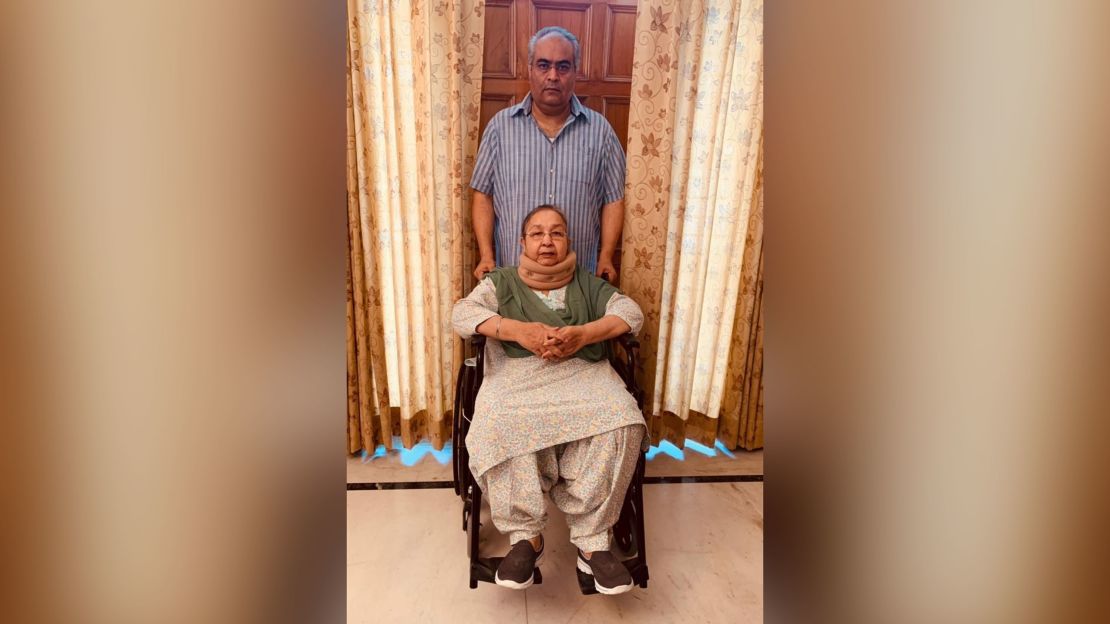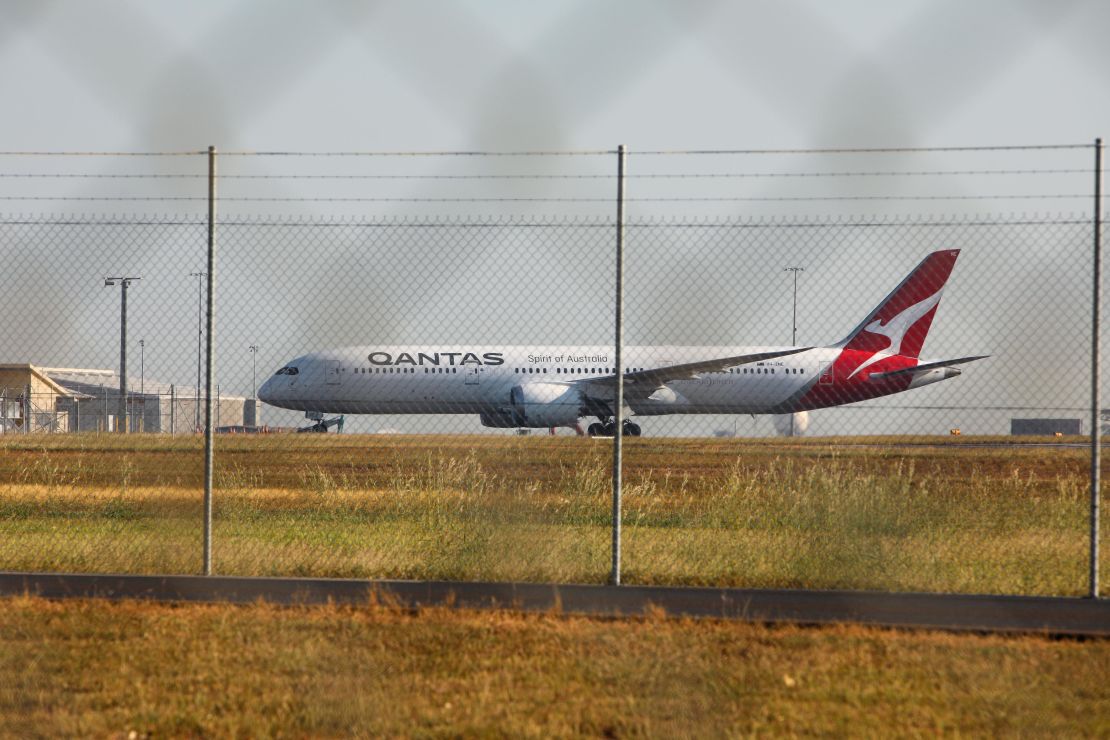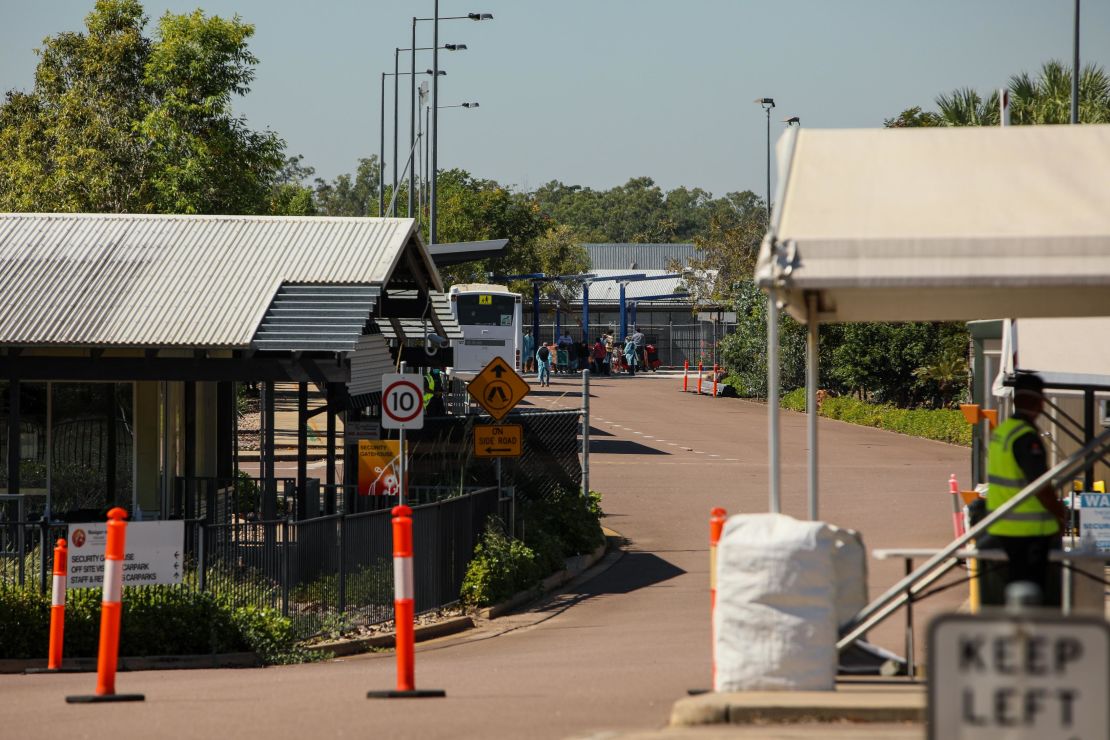Australians who waited months to escape India as coronavirus spread through the country say they lost a place on a repatriation flight provided by their government due to faulty Covid-19 testing.
CRL Diagnostics, which performed the tests for Australian airline Qantas, denied the results were inaccurate, but its managing director said the lab had carried out work while its Indian accreditation was suspended.
According to India’s National Accreditation Board for Testing and Calibration Laboratories (NABL), the Delhi-based company’s accreditation was suspended on April 6.
Ravi Tomar, managing director of CRL Diagnostics, said the company appealed the three-month suspension, and asked if “during this time should we continue testing or stop but we did not get a reply. So, we continued testing,” he said.
In a statement to CNN, NABL chief executive officer N. Venkateswaran said CRL Diagnostics’ accreditation was suspending for “non-compliance with accreditation norms.” “NABL accreditation is voluntary, and we cannot instruct the lab not to do testing. The suspensions means that they cannot use the NABL symbol or claim accreditation status,” Venkateswaran said.
As many as 10 passengers who were blocked from the repatriation flight have since tested negative for Covid-19, according to Sunny Joura, who was barred from the repatriation flight after testing positive. His elderly mother, Darshan, tested negative but could not board the flight as she was a close contact.
“I was extremely disappointed and shocked,” Joura said. “My mother and I did not venture out of the house at all for 14 days prior to the pre-flight quarantine. We were double-masking all that time.”

Joura took another test soon after with a different provider – it was also negative.
Yogesh Hasija, who is in Melbourne, tells a similar story about his wife Preeti Sabharwal, who was booked on the repatriation flight. She tested positive and was bumped from the flight, only to test negative days later.
CNN has seen copies of Joura and Sabharwal’s negative test results. Both blamed CRL Diagnostics for their initial positive tests results, which they believe were inaccurate.
In a statement, Qantas said it had told its diagnostic agency that any laboratory used to evaluate tests must have “all the current and appropriate accreditations.” Qantas didn’t specify if CRL Diagnostics was its diagnostic agency. Tomar said it didn’t have a direct link to Qantas, but was hired by another company to analyze the tests.
Qantas said in the statement that testing requirements were put in place in collaboration with Australia’s Department of Foreign Affairs and Trade to “minimize the risk of importing the virus and maximize the safety of everyone on board.”
“The reason we went to India was to bring home as many Australians as possible,” the Qantas statement said.
CNN reached out to the Australian government for comment.

Threats of fines and prison
Joura and his mother flew to India a year ago to care for his terminally ill father, but with the Covid-19 outbreak worsening there, they became desperate to return home to Australia. Joura’s wife and children are in Melbourne – he hasn’t seen them since last May.
The mother and son are among nearly 9,000 Australians who got stranded in India by flight caps imposed by the Australian government to ease pressure on the country’s hotel quarantine system.
In early May, as India’s Covid cases surged, the Australia government threatened 5-year prison sentences for anyone who arrived from India.
That measure was walked back on Saturday, and the first Qantas flight sent to repatriate 80 Australians from India touched down hours later in Darwin.
Joura and his mother were among the 150 or so people who secured seats, and they quarantined in Delhi for 72 hours before taking a Covid-19 test. But when the flight eventually took off, it was half empty.
According to CNN affiliate Nine News, 72 Australians were barred from the flight at the last moment after 48 people tested positive for the virus. Another 24 people, close family members, were subsequently denied permission to fly out, over fears they could have been exposed.
Tomar, from CRL Diagnostics, said the lab checked the tests and had confirmed they were correct.
“I have shared all data with Qantas. We have repeated all the tests and they all came back positive,” he said.
In a statement, Qantas confirmed all tests had been rerun under “medical supervision” with the same outcome. “This included some weak positives that may have been interpreted as negative results by other laboratories,” the airline said.
Ian Hosegood, Qantas chief medical officer, said: “Weak positive results usually mean someone is either in the very early stages of Covid, or could reflect a prior infection they may not even know they had.”
Australian Health Minister Greg Hunt said Monday the government considered the Qantas testing process to be “strong and rigorous.”
He defended the testing regime, saying it had worked as intended. “We’ve identified a large number of positive cases before people were allowed to leave for Australia. That’s precisely what we should be doing,” Hunt said.
“Some of those will be at the other end of their journey, nearing the completion of their cases. And we’re always reviewing the process.”
Of the providers that carried out the testing, he said: “I understand those providers are well respected in India but I will let others look at that.”

Half-empty flight
Australia’s strict limits on inbound travel have been credited with sparing the country the worst of Covid-19. Case numbers are relatively low, and Australia has recorded fewer than 1,000 Covid-19 deaths during the pandemic.
Flight restrictions imposed last year remain in place, limiting the weekly number of people who can return to each city.
The government say the restrictions are designed to prevent the hotel quarantine system from being overwhelmed. All international arrivals to Australia are required to spent 14 days in a hotel, at their own expense.
Australians have reported being bumped from flights, as airlines free up seats for higher paying passengers.
Thousands of Australians in India struggled to even get a ticket, so when India’s coronavirus case numbers grew and the government banned arrival from India, some said they felt abandoned by their country. Critics accused the government of racism.
Joura said he’s in touch with most of people who tested positive before Saturday’s flight. “All of them are very anxious and disappointed because of the current state of affairs,” he said.
Australian Prime Minister Scott Morrison has defended his government’s repatriation policies and testing regime, but said on Sunday he wanted to bring even more citizens home.
“This sort of testing is required from all places where people are coming from into Australia, whether it’s the UK or elsewhere. And of course, it’s important in India, and we’ve seen those high testing rates, and that’s frankly why we took the action we did because the risk was very, very high,” he said.

Joura questioned why the Australian government had placed all the passengers on the flight in the same hotel in New Delhi to isolate for 72 hours ahead of their flight, at a time when the city is still experiencing thousands of new Covid-19 cases every day.
“What was the reason for putting everyone in a hotbed like Delhi in a hotel, which is a public place?” he said.
Joura said he hadn’t heard anything more about when he might be able to leave India and the uncertainty was causing him anguish.
“Not having any clarity around potential resolution to the error committed by the testing regime continues to cause mental agony,” Joura said. “I hope that the Australian government will act expeditiously to end our misery.”
CNN’s Swati Gupta contributed to this article.























